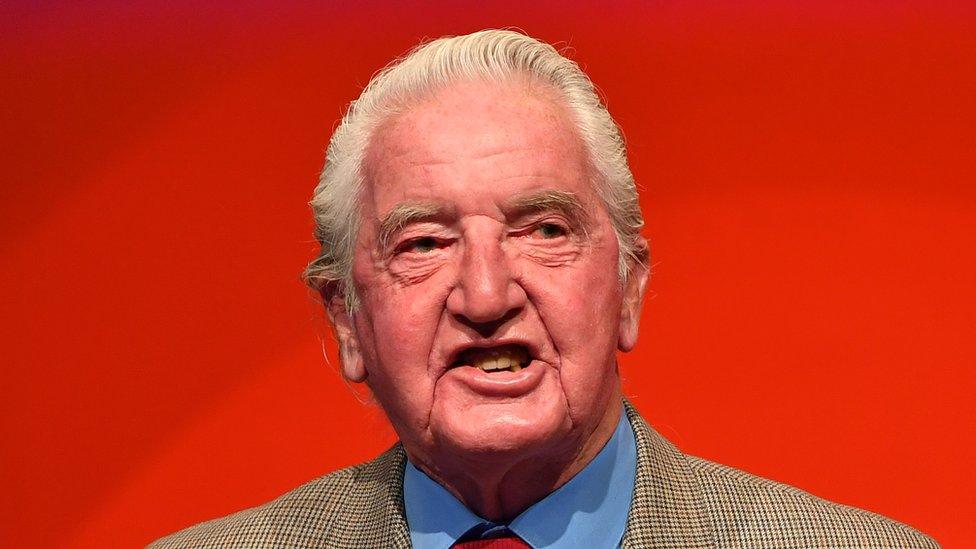Election to test whether Red Wall can be rebuilt
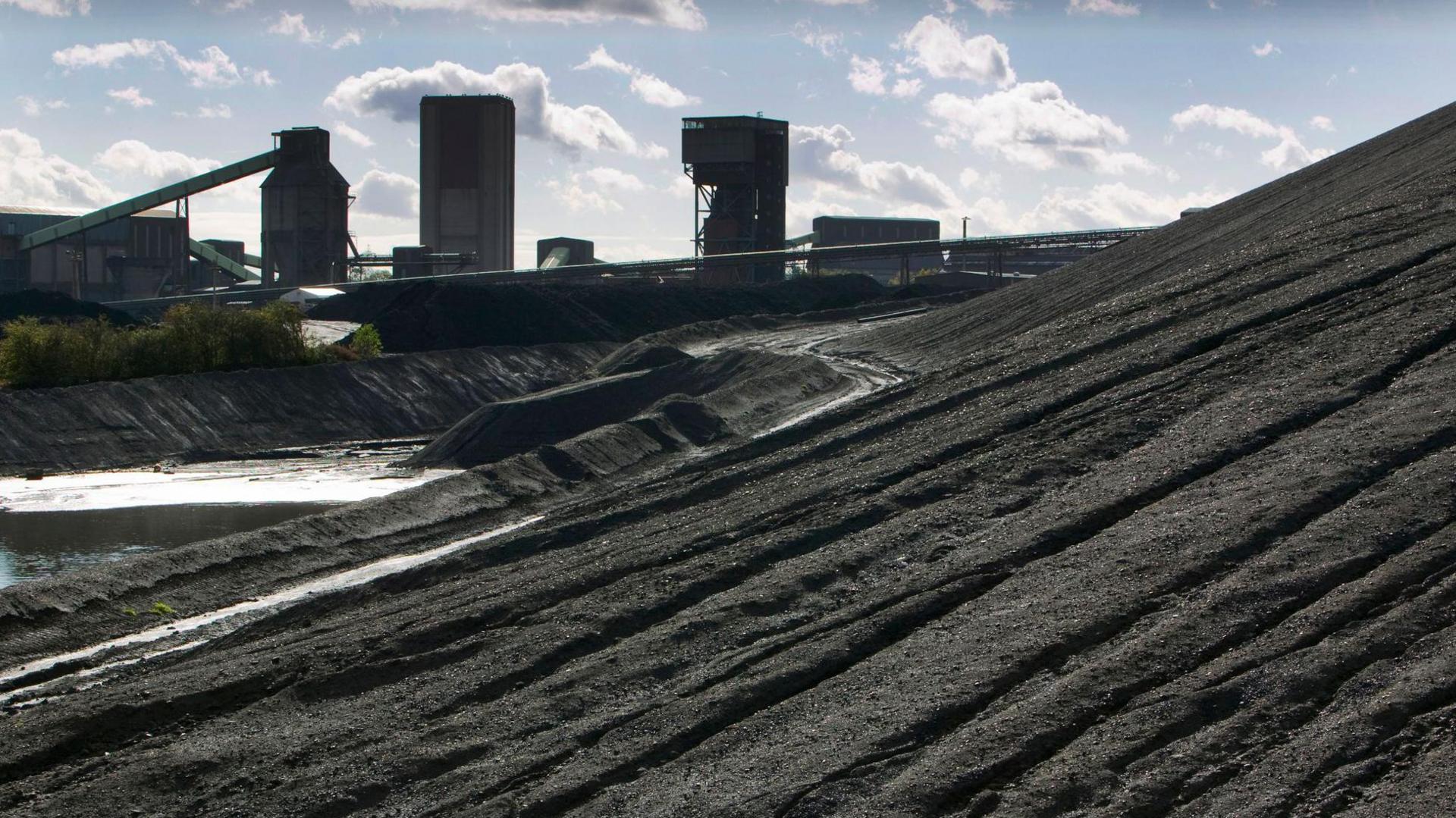
The pithead at Maltby Colliery was erased from the skyline in July 2014
- Published
After the alarms had sounded and the explosives were fired, the rubble left behind at Maltby Colliery marked a definitive end to the neighbouring pit village’s time as, well, a pit village.
For more than a century, the coal industry had dominated the landscape and community here – but in 2013, Maltby was left without a big employer.
The headgear at the South Yorkshire pit was finally demolished 10 years ago this month, but no-one expected that just five years later the area would elect a Conservative MP for the first time.
As a constituency, Rother Valley brings together two of the big political phrases to have gained traction since then: "levelling up" and the "Red Wall".
One of those phrases, levelling up, went on to become the name of a government department.
The other, the Red Wall, felt like an imposed generalisation of places in the North - and, ironically, it meant people had something in common: feeling hacked off at London grouping us all together as one.
Both levelling up and the Red Wall were inventions of 2019, and in 2024 all eyes are now on places like Maltby to see if voters think the promises were delivered upon - or not.
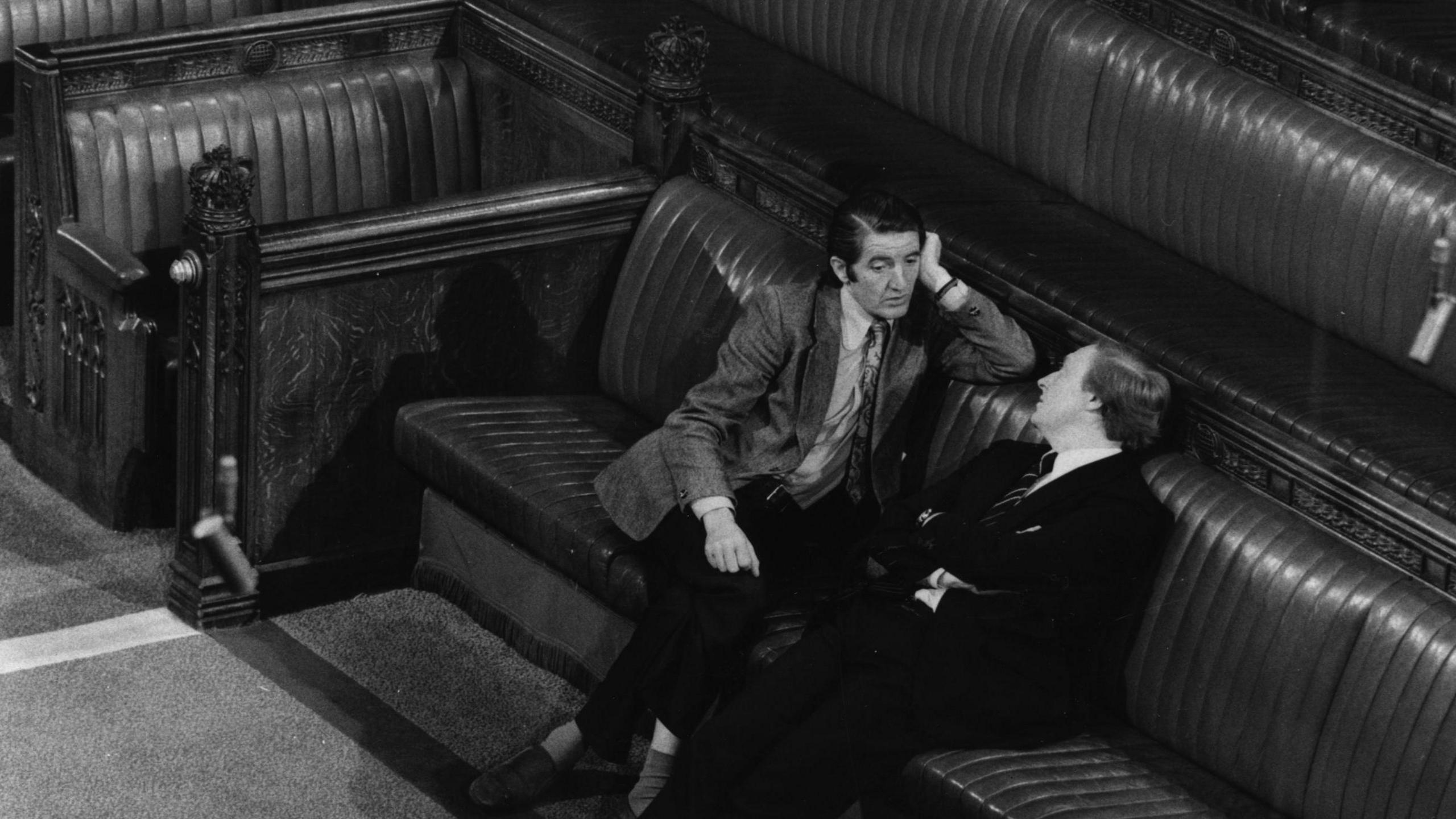
Veteran Labour MP Dennis Skinner entered Parliament as MP for Bolsover in 1970 and became a permanent fixture - until 2019
Less than 20 miles away from Maltby, against a backdrop of north Derbyshire’s rolling green hills, Sunny tells me: "I’m worried there's going to be no change."
Sipping on what is left of his pint, Sunny is sitting in the beer garden of the Blue Bell in Bolsover, a town surrounded by villages and former pit communities that, until 2019, had returned Labour MPs since 1950.
Just down the road, there is a castle that has been here since the 12th Century. It is easy to imagine Labour signs propped up on the ramparts even back then.
That is because this town, and constituencies like this across the Midlands and the north of England, were thought to be fortified with rock solid support for local Labour MPs like Dennis Skinner, who entered Parliament in 1970 to represent Bolsover.
That was until 2019, when Mr Skinner lost his seat to the Conservatives - a party promising to “level up” communities like his.
Known as the "Beast of Bolsover", he was one of dozens of casualties in a political earthquake that saw Labour’s vote collapse and the destruction of the so-called Red Wall.
If recent polls are accurate, though, Labour could once again be returning MPs in these former heartlands.
But would this mark the rekindling of that generational support for the party, or is renewed support for Labour in 2024 no more permanent than the backing the Conservatives received in these areas five years ago?
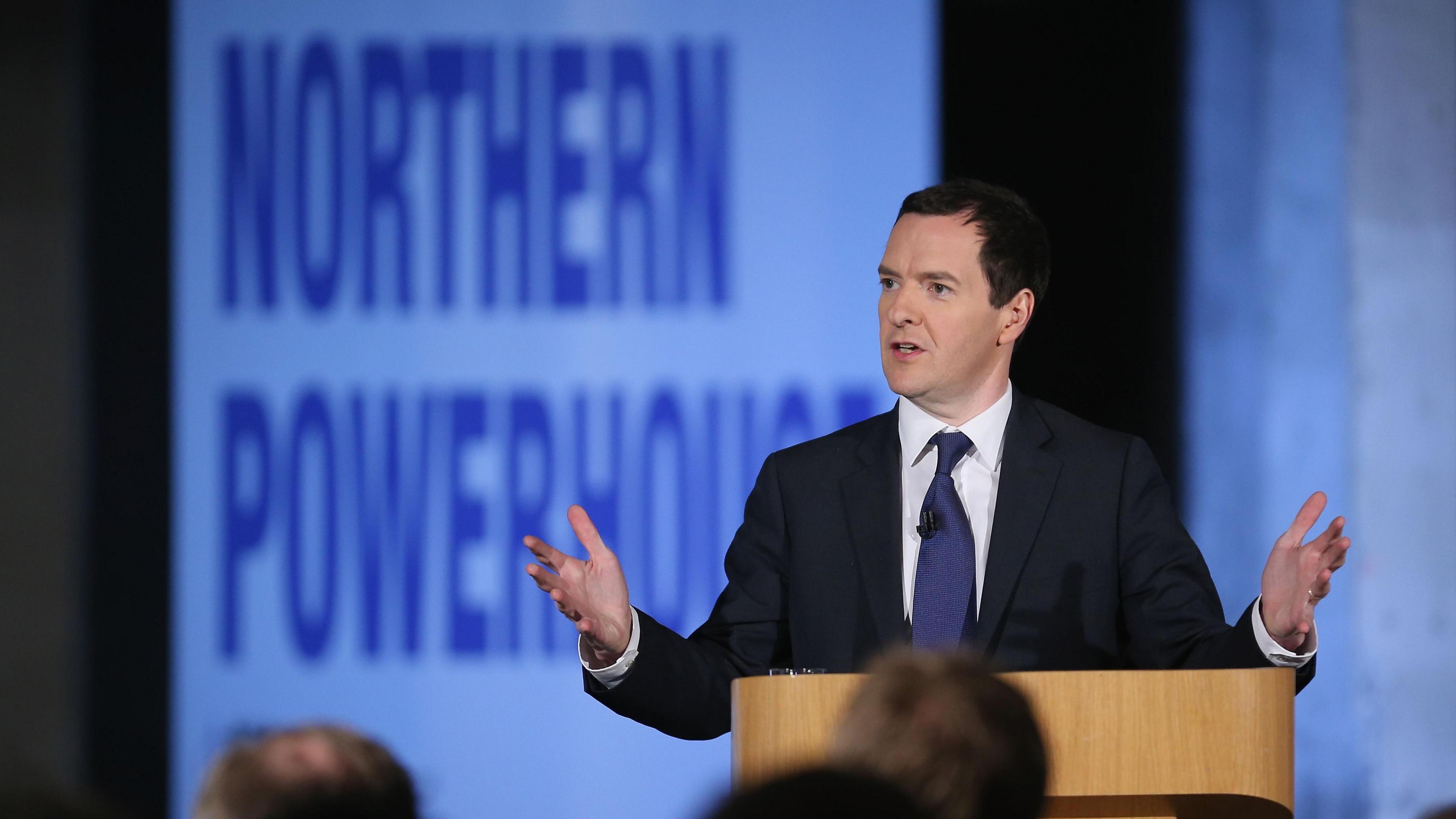
As chancellor, George Osborne introduced the Northern Powerhouse concept a decade ago
About 50 miles away, on the other side of the stunning vistas and steep limestone dales of the Peak District, lies Manchester.
It was here, in the city’s Museum of Science and Industry, that George Osborne stood up 10 years ago and coined the phrase that led us here.
“The cities of the North are individually strong, but collectively not strong enough,” said the then chancellor, standing against a backdrop of engines and hydraulics from Manchester's industrial past.
“The whole is less than the sum of its parts, so the powerhouse of London dominates more and more. That’s not healthy for our economy, it’s not good for our country. We need a Northern Powerhouse too," he told the audience a decade ago.
Henri Murison, chief executive of the Northern Powerhouse think tank, tells me: “It was a significant change in how the British constitution works, in how day-to-day politics works – and that would never have happened had it not been for that Northern Powerhouse vision."
He points to the devolution of powers to metro mayors as one of the successes of the Northern Powerhouse project, but he adds that plans for the rail network and innovation have not come to pass.
“We still have cities that are too small, even within their wider region, to punch their weight globally. And that means productivity in all our northern cities is below the national average,” he says.
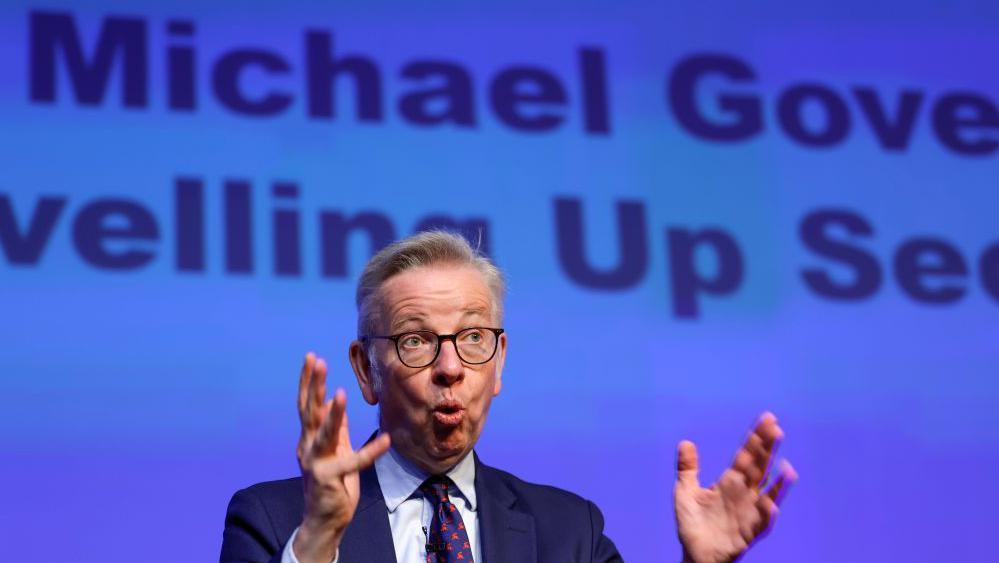
Levelling up was a phrase that worked for the Conservative Party on the doorstep -and became part of a government department
Back in 2019, to “level up” quickly became a campaigning verb in its own right and cut through on the doorstep.
It was not all levelling up, though.
Brexit and Jeremy Corbyn had their own effect on traditional Labour areas, but the key Conservative policy for the North made people believe the North-South divide could perhaps get narrower.
But while mayors were created and the structures of politics changed, did people feel better off?
For the 40th anniversary of the Miners’ Strike, BBC Yorkshire commissioned a survey into how people living in former coalfields felt - and 73% of them said they thought there had been “little or no levelling up”.
Paul Swinney, from the Centre for Cities think tank, says we have heard the phrase thousands of times since the last general election.
“It really seemed to catch everyone’s attention in 2019,” he adds.
“We haven’t levelled up since 2019. The challenges now are the same as what they were back then.
“I really hope that whoever gets elected will have a serious policy agenda in place to start making this real.”
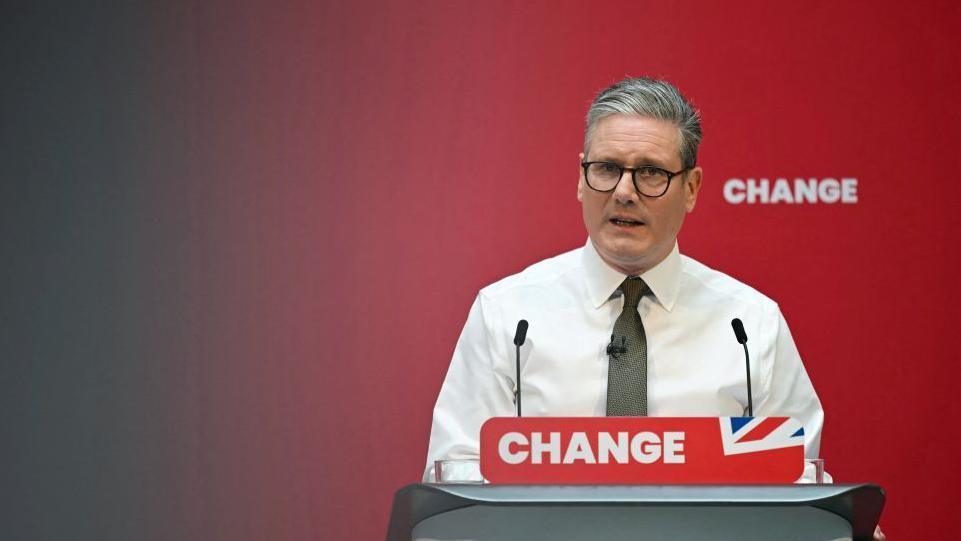
Labour leader Sir Keir Starmer delivered his 2024 manifesto launch speech in Manchester, with the "change" banner front and centre
In 2024, Labour is one of the parties promising change.
It is there in every interview with Sir Keir Starmer, the party's leader, and inescapable in the manifesto and in the former Red Wall seats that were desperate for change last time around, you would expect senior figures here pushing that message.
In 2019, you could not move for ministers and shadow minsters.
But the only leaders' visits we have had in Yorkshire this time round were Rishi Sunak nipping into his local ‘Spoons on a Saturday morning, and Keir Starmer and Ed Davey were here just before the BBC Election Question Time event in York – but it felt like they were just stopping off on the way there.
Meanwhile, Reform UK's leader Nigel Farage was driven around Barnsley in an open top bus and got stuff thrown at him.
Is this lack of visits because parties think that some of the seats here are a done deal and there are other places to campaign?
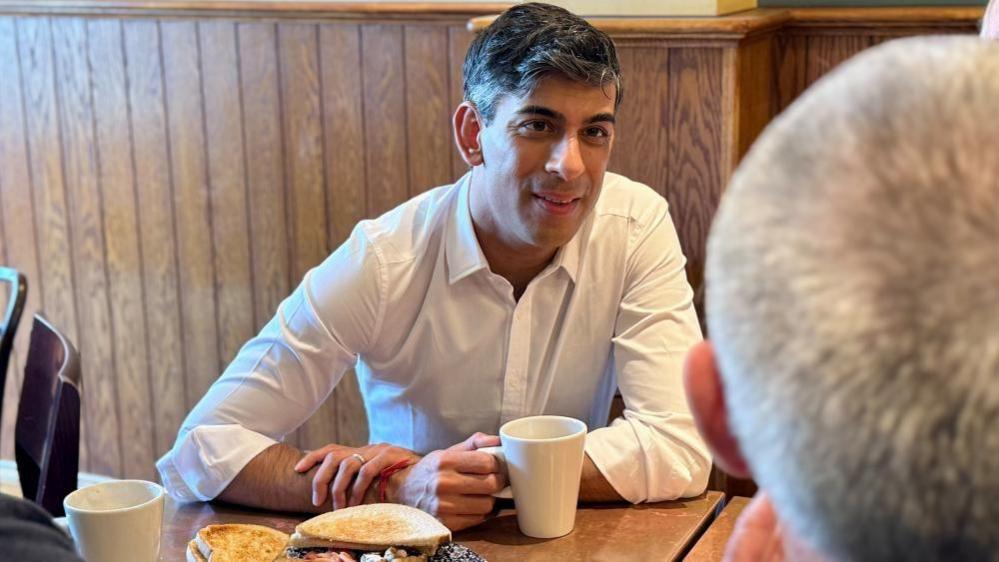
Rishi Sunak visited a Wetherspoons pub in Northallerton during the 2024 campaign to speak to voters
Insiders within Labour tell me they looked very closely at places they lost in 2019 during the mayoral elections in May. They have been analysing where votes went in very small areas to see if they have gained any ground on the Conservatives.
There was a specific focus at the four counts in South Yorkshire in May to see how the regional results broke down and those Labour insiders came away pleased with how their vote had changed in five years.
They knew they were likely to win the regional mayoral contest overall – but were almost more happy with the results they were getting back from specific areas they lost in 2019.
Conservative candidates are aware of how some people feel about their party at the moment and are playing this election based on their personal connections to the area. Some are dropping blue branding completely. One was even pictured with Nigel Farage on a leaflet, rather than Rishi Sunak.
Out on the doorsteps in Yorkshire, Tory candidates can point to levelling up money for high streets and communities; opponents point to the fact some councils have lost 40% of their government funding over the last decade.
The levelling up pots of money do not bridge that gap. Indeed, the Conservatives’ National Service policy plans to use some of that cash.
Do people feel like levelling up has worked? The Institute for Fiscal Studies this month called its progress “glacial".
It added: “On many metrics, gaps have widened since 2019.”
Some of those gaps are stark.
If you grew up in a coalfield area, you are likely to live for three years less than someone in the South East, according to a report commissioned by the Coalfields Regeneration Trust.
Meanwhile, men in parts of southern England can expect to live for 71 years in good health; in Barnsley, South Yorkshire, men get an average of 57 years.
Some of the North-South divide statistics are still pretty staggering - even when you have covered them for 20 years.
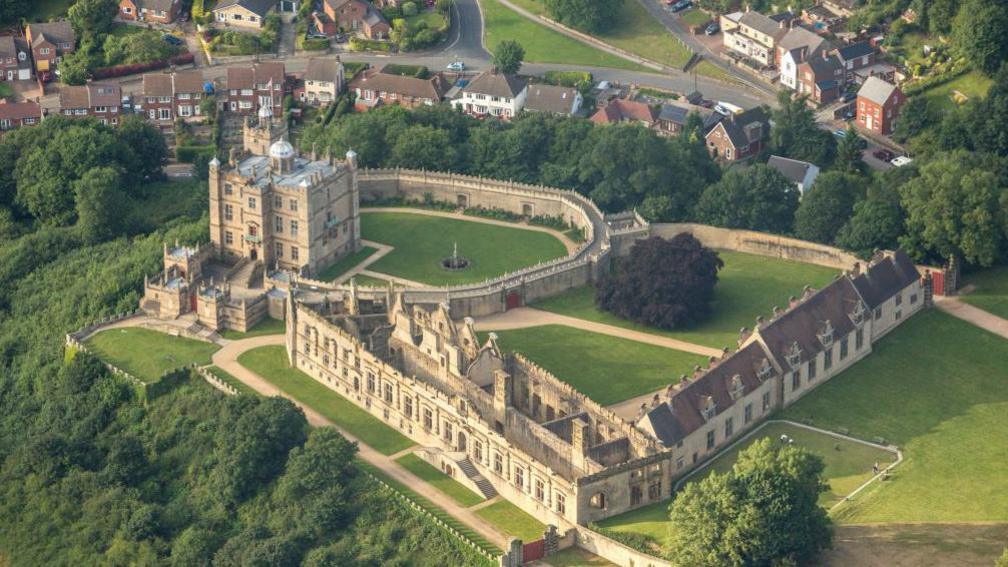
Bolsover Castle sits at the heart of a community which consistently returned Labour MPs from 1950 until 2019
Back in the former coalfield areas of Bolsover, it is one of those rare glorious English summer afternoons.
A few conversations here suggest some of those who say they will vote Labour will do so with modest enthusiasm.
More than 70% of voters in Bolsover chose to leave the EU.
More than 70% of Sunny’s lager has gone - and he is nearly ready for another.
He did not vote in 2019, but says he will probably vote Labour this time around.
“I didn’t bother because you get to the point when you just give up - nothing changes,” he says.
He then echoes what we have heard from many people during this campaign: “They promise you loads of stuff and never come through with it.”
Alongside Sunny is care worker Emma, who is on the lager and lime.
She says she does not come out for a drink as often these days because she is worried about her wages.
“We’re still on minimum wage in the care home,” she says.
“Even the residents and their families say we should be getting paid a lot more. I think we deserve a lot more.”
Emma voted Labour last time and says she “probably” will again.
She has worked at the care home for 12 years and says she will be looking closely at what the parties say they will do to sort out social care.
About 100 yards down the street, towards the old Town Hall, is one voter who says she has changed her mind for the third election in a row.
“For years I voted for Labour, but I actually voted Conservative last time,” says the woman, who does not want to give me her name – adding that this time she will be voting for Reform UK.
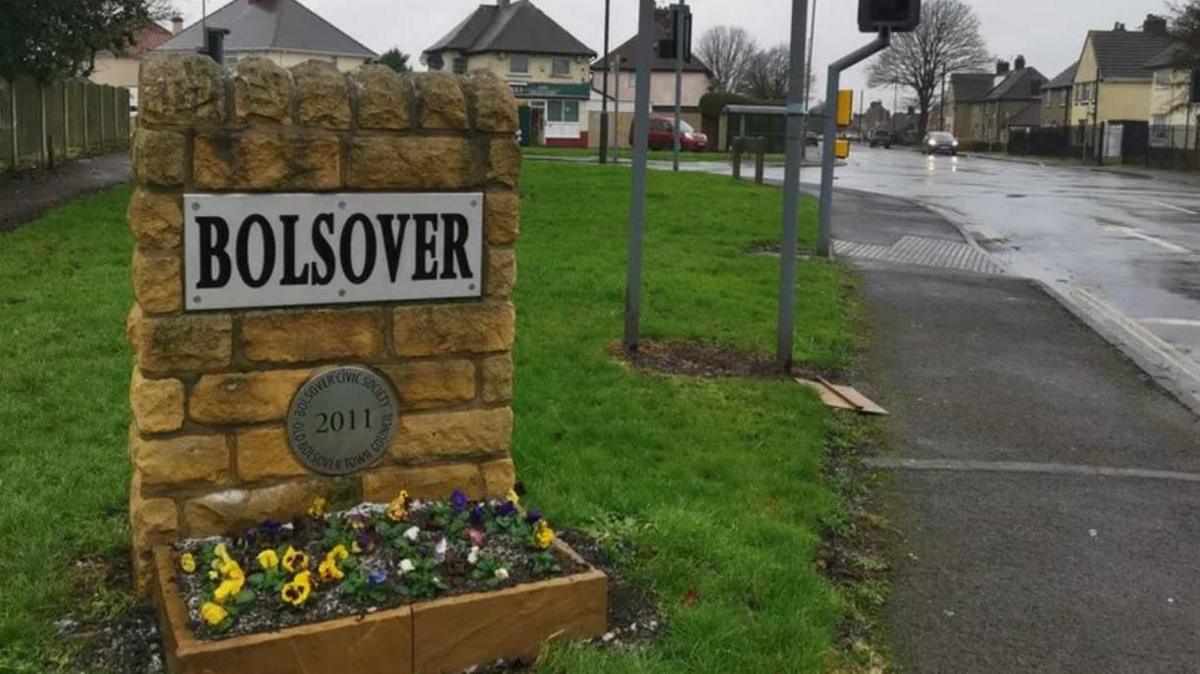
More than 70% of voters in Bolsover chose to leave the EU in the 2016 referendum
Polls suggest the Conservatives may lose the "Red Wall" seats they won here in 2019.
Many people who voted Conservative then for the first time ever said they were lending their votes to Boris Johnson after feeling they were not listened to.
This time, there is a strong sense they will lend their votes back to Labour.
Labour will take them gladly, but have a fair bit of work to do to make sure people feel like they are valued here and that they have earned those votes.
Reform UK may well pick up votes from both traditional Labour and Conservative voters. Labour has lost numbers to UKIP and the Brexit Party here before – but this time the Conservatives have more to lose.
In all the miles I have clocked up during this campaign, apathy and exhaustion are often what people want to talk about – not which party is their favourite.
Northern Powerhouse, Levelling Up - whichever Westminster slogan you want to use - all of the parties will need to convince voters they can help improve people’s lives.
At the moment, lots of people here are not sure that anyone is offering that to them - or, if they are, whether they can be believed.
Full list of candidates standing in the Bolsover constituency
David Hancock - Liberal Democrat
David Kesteven - Green Party
Mark Fletcher - Conservative
Natalie Fleet - Labour
Robert Reaney - Reform UK
Follow BBC Yorkshire on Facebook, external, X (formerly Twitter, external) and Instagram, external. Send your story ideas to yorkslincs.news@bbc.co.uk.
Related topics
- Published4 March 2024
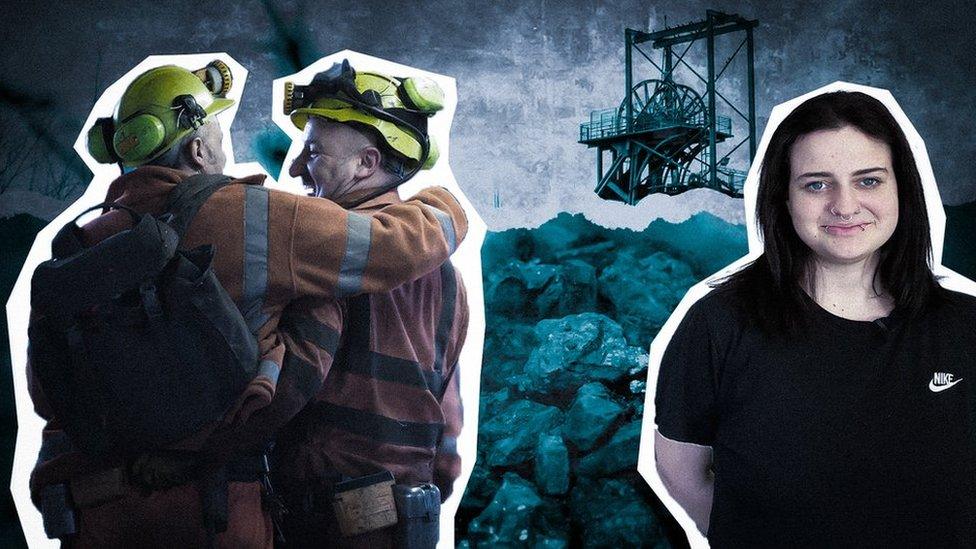
- Published23 April 2024
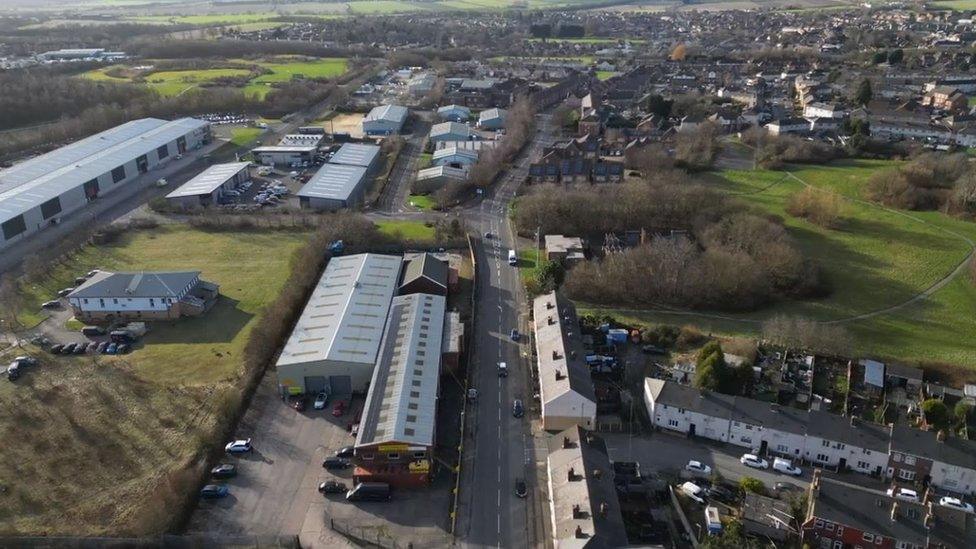
- Published13 December 2019
